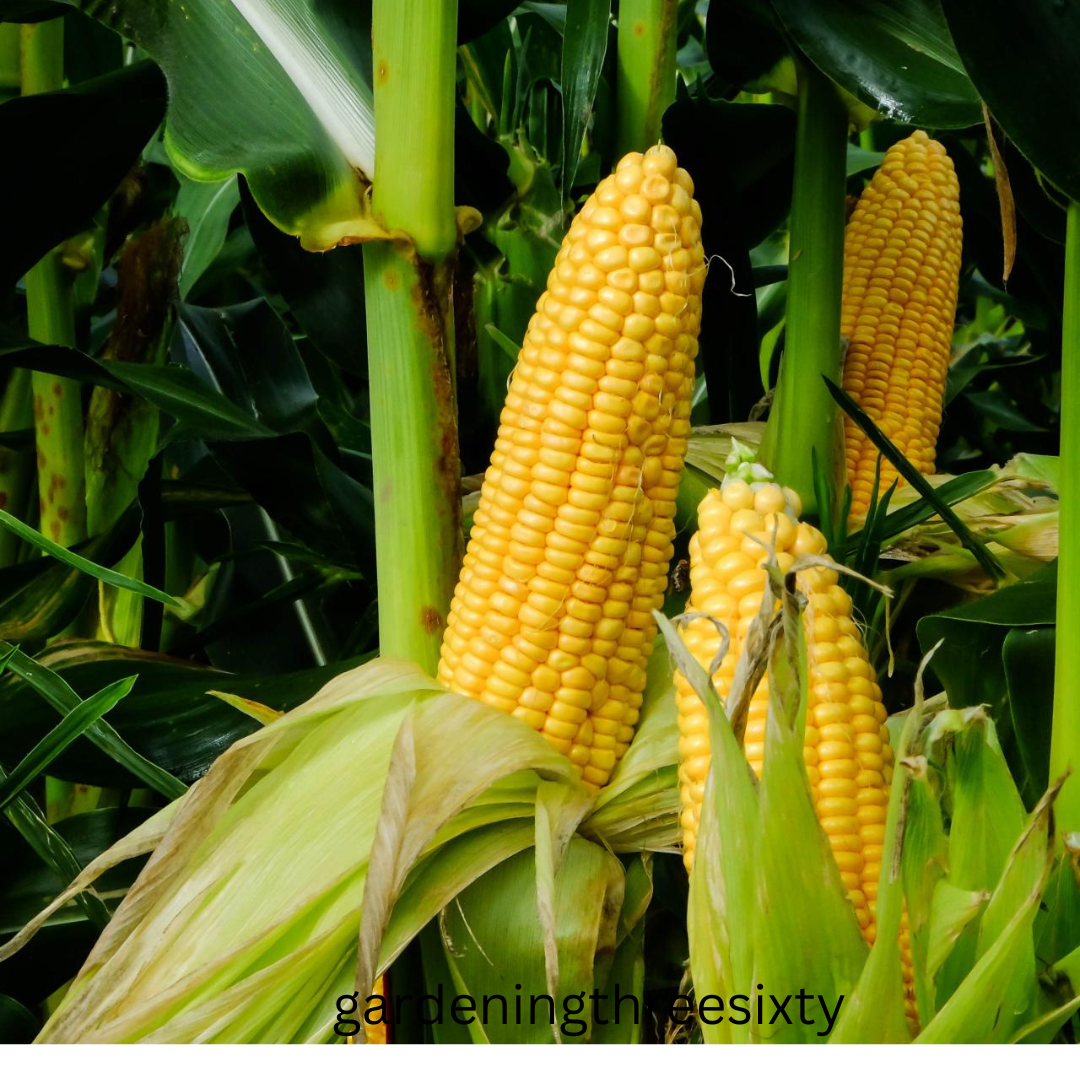Can diabetics eat corn? Yes, people with diabetes can enjoy corn! It has beneficial nutrients like fiber and vitamins and is low in fat and sodium. However, it’s important to be mindful of portion sizes since corn contains carbohydrates, which can raise blood sugar.
With proper planning and counting carbs, diabetics can include corn in a healthy diet. Diabetes, a condition characterized by high blood sugar levels, necessitates careful dietary choices to manage effectively, Corn is a nutritious grain rich in essential nutrients like fiber, vitamins, and minerals. For diabetics, understanding how corn impacts blood sugar levels is crucial for meal planning and blood sugar management. The glycemic index (GI) of corn plays a role in determining its impact on blood sugar levels in diabetic individuals.
Benefits of Corn for Diabetics Can Diabetics Eat Corn?
Despite its carbohydrate content, corn offers potential benefits for diabetics due to its fiber and nutrient profile. Diabetics can enjoy corn in moderation as part of a healthy meal plan. Here’s why:

Fiber Powerhouse For Diabetic Can Eat Corn
Corn is a good source of dietary fiber, which helps regulate blood sugar. Fiber slows down the digestion of carbohydrates, preventing blood sugar spikes after meals. This is especially crucial for diabetics who need to manage their blood sugar levels.
Nutrient Rich For Diabetic Can Eat Corn
Corn offers a variety of vitamins and minerals that benefit overall health. B vitamins like thiamin, niacin, and B6 are essential for energy production and nervous system function.
Corn also contains vitamin C, an antioxidant that helps protect cells from damage. Minerals like magnesium and potassium are important for maintaining healthy blood pressure and heart function, which is significant for diabetics at higher risk for cardiovascular issues.
Moderate Glycemic Index For Diabetic Can Eat Corn
The glycemic index (GI) ranks foods based on their impact on blood sugar. Low GI foods cause a gradual rise in blood sugar, while high GI foods cause a rapid spike. Boiled corn has a moderate GI of around 52, making it a better choice than refined carbohydrates like white bread or pastries.
Potential Long-Term Benefits For Diabetic Can Eat Corn
Studies suggest that compounds like flavonoids found in corn might help reduce the risk of chronic diseases like type 2 diabetes. Additionally, moderate intake of resistant starch, a type of fiber in corn, may improve insulin sensitivity and glucose control.
Remember, portion control is key. While corn offers benefits, it’s still a starchy vegetable with carbohydrates. Talk to your doctor or a registered dietitian for personalized advice on incorporating corn into your diabetic meal plan.
Corn Preparation Methods for Diabetics Can Diabetics Eat corn
Healthier preparation methods can mitigate the negative effects of corn on blood sugar levels for diabetics. Diabetics can enjoy corn in moderation by choosing preparation methods that minimize blood sugar spikes. Here’s how:
Cooking Methods for Can Diabetics Eat Corn
Boiling, grilling, or steaming are all great options. These methods don’t add extra fats or sugars that can impact blood sugar control. Avoid deep-frying or smothering corn in butter or sugary sauces.
Portion control for Can Diabetics Eat corn
Be mindful of serving sizes. Diabetics can still enjoy corn, but it’s important to factor it into their daily carbohydrate intake.
Pair with healthy fats and fiber so Diabetics can eat corn
Including protein, healthy fats, and fiber alongside corn can help slow down the absorption of carbohydrates, leading to a more gradual rise in blood sugar. Think lean protein like grilled chicken or fish, and non-starchy vegetables like peppers or onions.

Incorporating Corn into a Diabetic Meal Plan that Can Diabetics Eat Corn
Strategically incorporating corn into a balanced diabetic meal plan can enhance nutrition without spiking blood sugar. Absolutely! Corn can be a healthy addition to a diabetic meal plan, but moderation is key. While corn has a higher carbohydrate content, it boasts a lower glycemic index than some starchy options. This means it causes a slower rise in blood sugar levels. Corn is also packed with fiber, which further aids in blood sugar regulation by slowing down the absorption of glucose.
To make the most of corn’s benefits, enjoy it fresh, steamed, or grilled. Limit butter and opt for olive oil and herbs for flavor. Incorporate corn kernels into salads, soups, or stews for a burst of texture and sweetness. Remember, portion control is crucial. A single ear of corn is typically a good serving size. If you’re unsure, consult a registered dietitian to create a personalized diabetic meal plan that incorporates corn strategically.
Expert Recommendations that Can Diabetics Eat Corn
People with diabetes can enjoy corn! It offers valuable nutrients like fiber, vitamins, and minerals, all while being low in fat and sodium. This aligns well with diabetic dietary recommendations. However, moderation is key. Corn contains carbohydrates, which can raise blood sugar levels. The trick lies in portion control and considering how the corn is prepared.
Dieticians recommend consulting with a healthcare professional to determine the best amount of corn to include in your diabetic meal plan. They can also advise on how to balance corn with other foods to create healthy and blood sugar-friendly meals. Experts offer valuable advice on how diabetics can safely include corn in their diet for optimal health.

Research Studies on Corn and Diabetes that Can Diabetic Eat Corn
Research studies play a pivotal role in understanding the effects of corn consumption on individuals with diabetes. Numerous studies have explored various aspects, from the glycemic impact of corn to its potential benefits and risks. The relationship between corn and diabetes is a bit complex. Corn itself has a variable glycemic index (GI), a rating system for how quickly carbohydrates raise blood sugar. While sweet corn can cause a spike, fresh corn or corn products high in fiber can have a lower GI.
Some studies suggest that including these in moderation might even be beneficial for diabetics. Research shows promise for corn’s potential to help manage diabetes. One study found that diabetic rats fed corn flour cookies experienced reduced blood sugar levels [1]. This could be due to the fiber content in corn slowing down digestion and sugar absorption.
Additionally, corn contains antioxidants called flavonoids, which have been linked to a lower risk of chronic diseases like diabetes [2]. It’s important to note that portion size and overall diet play a crucial role. Diabetics should talk to their doctor or a registered dietitian for personalized advice on incorporating corn into their diet. They can help determine suitable amounts and recommend types of corn with a lower glycemic impact.
Choosing Whole whole-kernel corn that Can Diabetic Eat Corn
Opting for whole-kernel corn over processed corn products is recommended for diabetics. Whole kernel corn retains its fiber content, which is beneficial for digestion and blood sugar management. Fresh or frozen whole-kernel corn, corn on the cob, or canned corn with no added sugars or syrups are preferable choices.
Avoiding creamed corn or corn dishes with high-fat sauces and added sugars is advisable to maintain a healthier meal profile. Diabetic patients can certainly enjoy corn, even whole-kernel corn, as part of a balanced diet! The key lies in portion control and how the corn is prepared. Whole kernel corn itself contains beneficial nutrients like fiber, vitamins, and minerals. However, it’s also a starchy vegetable, which means it can raise blood sugar levels. To manage this, focus on portion size.
A single ear of corn typically has around 15 grams of carbohydrates. Factor this into your daily carb intake recommended by your doctor or dietician. Here’s where choosing whole-kernel corn shines. Compared to processed corn products like chips or creamed corn, whole kernels provide more fiber. Fiber helps slow down the digestion and absorption of carbohydrates, leading to a more gradual rise in blood sugar. Preparation methods also play a role. Boiling or grilling corn are healthy ways to enjoy it.
Avoid smothering it in butter or sugary sauces, which can add unnecessary calories and carbohydrates. Consider pairing your corn with protein and non-starchy vegetables for a well-rounded and blood sugar-friendly meal.
Potential Risks and Concerns that Can Diabetic Eat Corn
While corn can offer nutritional benefits for diabetics when consumed appropriately, there are potential risks and concerns to be aware of. Diabetics can enjoy corn in moderation, but there are a few things to consider. Corn has a high glycemic index (GI), which means it can cause blood sugar levels to rise quickly. This can be problematic for diabetics who need to manage their blood sugar carefully.

Here’s a breakdown of the potential risks and concerns:
Blood Sugar Spike with Can Diabetics Eat Corn
The starches in corn break down into sugars quickly, leading to a blood sugar spike. This can be especially concerning for diabetics who are already struggling with blood sugar control.
Portion Size Matters when Can Diabetics Eat Corn
As with most foods, portion control is key. A small amount of corn on the cob or a half cup of kernels is unlikely to cause significant problems. However, larger portions can significantly elevate blood sugar.
Preparation Method in Can Diabetics Eat Corn
How you prepare corn can also impact its effect on blood sugar. Avoid frying corn, which adds unhealthy fats and further increases its glycemic impact. Opt for healthier cooking methods like grilling, baking, or boiling.
Fiber Content in Can Diabetics Eat Corn
Corn contains some fiber, which can help slow down digestion and potentially blunt the blood sugar spike. However, the fiber content in corn is lower compared to other complex carbohydrates like whole grains. Pairing corn with a source of fiber, like vegetables or beans, can help mitigate the blood sugar rise.
Overall Diet for Can Diabetics Eat Corn
It’s important to consider corn within the context of your entire diet. If you’re managing diabetes, you should focus on a balanced diet rich in vegetables, whole grains, and lean protein. These foods tend to have a lower glycemic index and provide sustained energy without causing blood sugar spikes.
Remember, every diabetic is different. While some may tolerate corn without significant issues, others may see a more pronounced rise in blood sugar. It’s always best to discuss your diet, including corn consumption, with your doctor or registered dietitian. They can help you determine a safe amount of corn to include in your meals and provide personalized guidance for managing your diabetes.
Processing and Added Ingredients that Can Diabetic Eat Corn
Processed corn products, such as corn chips, corn syrup, and corn-based snacks, often contain added sugars, salts, and unhealthy fats. These additives can contribute to higher glycemic responses and may not be suitable for diabetics.
Choosing minimally processed corn products and reading labels to avoid added sugars and unhealthy ingredients is crucial. People with diabetes can enjoy corn! It offers valuable nutrients and fits well into a balanced diabetic diet with some considerations. Here’s how processing and added ingredients can impact how you consume corn for healthy blood sugar management

After Processing when Can Diabetics Eat Corn
Fresh vs. Canned for diabetics can eat corn
Fresh corn on the cob is generally the best option. It retains the most fiber, which helps slow down digestion and sugar absorption into the bloodstream. Canned corn can still be enjoyed, but be mindful that some brands add sugars or syrups. Look for “no added sugar” varieties and rinse them before eating to remove any excess sugar content.
Air-popped vs. Microwave Popcorn when Can Diabetics Eat Corn
Air-popped popcorn is a fantastic source of fiber for diabetics. However, microwave popcorn is often loaded with unhealthy fats, sodium, and artificial flavors. If you prefer microwave popcorn, choose air-popped options with minimal added ingredients.
Added Ingredients when Can Diabetics Eat Corn
Butter and Salt for Can Diabetics Eat Corn
While butter adds a delicious flavor to corn, it’s high in saturated fat. Opt for healthier fats like olive oil or a small sprinkle of avocado for added creaminess. Limit added salt as well, as high sodium intake can be detrimental for diabetics.
Sugary Sauces and Toppings When Can Diabetics Eat Corn
Avoid sugary sauces like ketchup or BBQ sauce, which can significantly spike blood sugar levels. Flavor your corn with herbs, spices, or a squeeze of fresh lime or lemon juice. For a creamy topping, try a dollop of plain Greek yogurt with chopped fresh herbs.
General Tips when Can Diabetics Eat Corn
Portion Control for diabetics can eat corn
Corn is a starchy vegetable, meaning it contains carbohydrates that can affect blood sugar. Be mindful of portion sizes. A single ear of corn is a reasonable amount.
Pair with Protein and Healthy Fats with Can Diabetics Eat Corn
Eating corn with protein and healthy fats like grilled chicken or fish helps slow down digestion and prevent blood sugar spikes.
Consider the Glycemic Index for Can Diabetics Eat Corn
While fresh corn has a moderate glycemic index (GI), meaning it raises blood sugar at a somewhat slower pace, cooking methods can affect this. Boiling or grilling corn has a lower impact than frying.
Remember, the key is to enjoy corn in moderation as part of a balanced diabetic meal plan. Consulting a registered dietitian can help you create a personalized plan that incorporates corn and other delicious foods while keeping your blood sugar under control.
Potential Allergies for Can Diabetics Eat Corn
While rare, some individuals may have allergies or sensitivities to corn or corn-derived products. Diabetics should be aware of potential allergic reactions and consult healthcare providers if they experience any adverse effects after consuming corn. Diabetics can certainly enjoy corn, but it’s important to be aware of both allergies and blood sugar impact.
Corn allergies, though less common than allergies to peanuts or shellfish, can cause symptoms like hives, itching, or swelling. If you’ve never had corn before, introduce it gradually and watch for any reactions. As for diabetes, corn is higher in carbohydrates which can raise blood sugar. However, portion control and pairing corn with other healthy foods can help manage this. If you have concerns, consult your doctor or a registered dietitian for personalized advice.
You might be interested in having a read
Impact on Weight Management when Can Diabetics Eat Corn
For diabetics focusing on weight management, excessive consumption of calorie-dense corn products like popcorn, corn chips, or sweetened corn cereals can contribute to weight gain. It’s essential to balance corn intake with overall calorie needs and maintain a healthy weight through portion control and mindful food choices.

Conclusion Can Diabetics Eat Corn
In conclusion, incorporating corn into a diabetic meal plan can be beneficial when done mindfully and in moderation. By practicing portion control, choosing whole-kernel corn, using healthy preparation methods, and consulting with healthcare professionals, individuals with diabetes can enjoy the nutritional benefits of corn while supporting blood sugar control and overall well-being. while corn can be a nutritious addition to a diabetic diet, it’s essential to be mindful of potential risks and concerns. By focusing on whole foods, practicing portion control, reading labels, and seeking guidance from healthcare professionals, diabetics can enjoy the benefits of corn while managing potential risks effectively.
Can corn raise blood sugar?
Yes, corn can raise blood sugar. This is because corn is a starchy vegetable, and starch is a type of carbohydrate that the body breaks down into glucose (sugar) for energy.
The glycemic index (GI) of corn is a measure of how quickly and how much it raises blood sugar levels. Sweet corn has a GI of 52, which is considered to be moderate. This means that it will cause a moderate rise in blood sugar levels.
Is corn better than rice for diabetes?
Neither corn nor rice is inherently better for diabetes. Both can be part of a healthy diabetic diet, but there are some factors to consider.
What is the best fruit for a diabetic to eat?
There isn’t one single “best” fruit for diabetics, but there are many fruits that are excellent choices. These fruits are typically low on the glycemic index (GI) scale, meaning they raise blood sugar levels slowly. They are also packed with nutrients, like fiber, vitamins, and minerals, that can benefit people with diabetes.
Can a diabetic eat popcorn?
Yes, people with diabetes can eat popcorn, but there are a few things to keep in mind. Cooking method, Preparation, Portion control
What reduces blood sugar quickly?
There are two main ways to quickly reduce blood sugar. Taking Insulin and exercise.
- How To Grow an Orange Tree From an Orange
- Fruits that grow on vines
- Cold hardy avocado trees
- Evergreen fruit trees
- How do weeds grow
- Hanging Baskets
- Best Soil for Herbs
- Guava Seed Germination
- Ebullient Guidelines for Varieties of Pomegranate Tree
- Trees with Yellow Leaves
- Guideline for Best Grass Seed for Florida
- Spraying Fruit Trees
- Christmas Jewel Holly
- Guideline for Planting Berries
